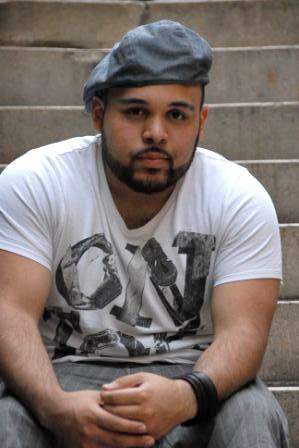A Forum for Candid Conversations
A Forum for Candid Conversations
A student-run Racial Literacy Roundtable series focused on issues of race, class, privilege and access
"It's just that if we wait for people to do the right thing, we will be waiting forever."
The speaker, on a balmy Thursday evening this past April, was a TC student, addressing a group of 20 other members of the College community. The topic was whether gifted and talented programs in public schools encourage segregation--part of a broader discussion of the current state of "separate but unequal" education which was the focus of a three-part Racial Literacy Roundtable Series.
Candid conversations in which all participants freely examine issues of race, class, privilege and access, looking at their own biases as well as that of others, are not the norm in many classrooms. Educators often fear that such discussions will become personal and acrimonious. But for TC Professor of English Education Yolanda Sealey-Ruiz, who is the faculty supervisor for the student-facilitated roundtable series, getting personal is an essential part of the process.
"No one is here to lecture," Sealey-Ruiz told the gathering in April. "This is about where people are."
The origins of the April 22 event can be traced back to last summer, when Sealey-Ruiz wrapped up a section of her course, "Teaching English in Diverse Social and Cultural Contexts." The course had met twice a week for six weeks to examine how factors such as race and class inform curriculum planning and the practice of teaching of literacy in middle and high school classrooms. Here, too, participants were required to examine how their own biases might affect their teaching.
"The idea," explains Sealey-Ruiz, "is to think about the diversities that exist in our lives and the lives of our students."
When the class was ending, though, Sealey-Ruiz was left with the feeling that the discussion was only beginning, and so she posted an open letter to her students on Class Web.
"Open up to each other about your uncertainties, fears and ideas on teaching, so that you can become…a resource to each other…" she wrote.
Four students responded passionately, echoing Sealey-Ruiz's desire to keep the conversation alive. And a few months later, together with Sealey-Ruiz, three of those four students--Emily Carman '10, James Kang '10 and Lauren Gengo '10-- applied for and received a grant from the Office of the Vice President for Community and Diversity Affairs to create a forum for building community around tough issues. The Racial Literacy Roundtable Series was born.
Held in November, the first event focused generally on culture. In March, the second event was centered on urban education, with a mini-theme on "the School-to-Prison Pipeline."
The events have been extremely successful, attracting a mix pre-service and in-service teachers, as well as alumni and even high school students. At the April event, Gengo kicked off the discussion by reading a letter to the group in which she explained why issues of diversity matter to her personally: "This experience has helped define my path, where I want to go with my own teaching, outside of the classroom with social justice issues."
TC alumna Darrell Hucks, who teaches at
For Ricardo Nigaglioni, a high school senior who met Sealey-Ruiz through Umoja, a youth organization for young readers and writers committed to social justice, the Racial Literacy Roundtables have been refreshing. "It's great to see how teachers are feeling and thinking," he said of the community-building atmosphere.
And they learn from his perspective, too. As the conversation unfolded, Nigaglioni explained why he's had to switch high schools three times before feeling comfortable, recalling what it was like to walk into an overcrowded classroom that contained many more students than seats. "It shouldn't have to be like that," he said to the group.
The conversation also explored the pressures of standardized testing and how that relates to the achievement gap. TC student Noelle Gipson said, "We have to stop expecting instant results. Children don't teach you that.
Nigaglioni, who is also a spoken word artist, was so inspired by the topic of creating equal opportunities for all students that he performed one of his own pieces, "The Boulevard of Broken Dreams." The work is based on his experiences growing up in the
Given the enthusiastic response to the broader series, there's hope of continuing it this coming year. "Students have the power to engage their peers and the larger community," says Sealey-Ruiz. "It's really special."
Published Wednesday, Jun. 23, 2010
